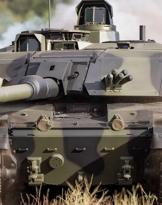About a thousand seniors, including the main religious leaders of the Taliban group, gathered last Wednesday near Quetta, Pakistan, to try to resolve disputes over the appointment of the future leader of the movement, after the death of the founder Mohammad Omar . This is what is learned from numerous Taliban sources.
The meetings could pose a serious challenge to the position of the recently declared movement leader, Mullah Akhtar Mansoor, who is trying to consolidate power after the death of the supreme commander, mullah Mohammad Omar, which occurred two years ago.
Mansoor, a member of the close circle of Mullah Omar, was legitimately named as the new supreme commander of the movement. A powerful Taliban faction, however, would not have recognized this authority, siding with Omar's eldest son, 26enne Mohammad Yaqoub Mullah. The internal tensions between the Taliban could have very serious implications in the peace talks already begun, but suspended after the announcement of Omar's death.
Mansoor himself would have disavowed the talks with the Afghan government, throwing back into discussion any kind of preliminary agreement reached. Mansour, who received command from the Taliban leaders' council, would not participate in the meeting. Yaquob, on the other hand, would have recognized the authority of the meeting and the decisions taken.
Gatherings of the kind - add from Stars and Stripes citing Taliban sources - have in the past helped resolve internal disputes over the movement.
However, the meetings are a clear attempt to reunify the group. Zabihullah Mujahid, spokesman for the Taliban, confirmed the meetings between the religious leaders of the movement, not specifying the time needed to resolve the internal disputes within the group.
The question about the future leader is not just political. Omar obtained the title of "Emir of believers", while the leader of al-Qaeda, Ayman al-Zawahiri, recently confirmed the loyalty of the terrorist group in Mansoor. If the meetings do not resolve the ongoing dispute, the choice of leader could turn into a bloodbath.
It has long been known that the Taliban are facing a delicate moment. Tayeb Agha, a high-profile figure of the movement, resigned as head of the Taliban political office in Qatar after criticizing the way Mansoor was chosen. Abdul Manan Niazi Mullah, a member of the main council that would support Mansoor's appointment, told Al Jazeera that he had not been consulted in the final vote. A few days ago, Maulvi Haibatullah Noorzai would have escaped an attack in the Pakistani Baluchistan province. According to the Afghan Pajhwok News, Noorzai and the head of the board of Taliban leaders, Maulvi Abdul Kabir, were on a mission to try to gather support for Mansoor.
Who is the new leader of the Taliban
We say that it could also be a new enemy of the West.
Akhtar Mohammad Mansoor should have been born in the village of Kariz, in the Maiwand district, in the province of Kandahar in southern Afghanistan. It should have been born between the 1960 and the 1965. Of Pashtun ethnicity, belongs to the Ishaqzai tribe, of the Durrani tribal confederation. During the Russian invasion of Afghanistan, Mansoor joined the paramilitary group founded by Mohammad Nabi Mohammadi, leader of Harakat-i-Inqilab-i-Islami. It was then that he met one of the leading commanders of the movement, Mohammad Omar.
After the war he moved and Quetta resumed his religious education. Arrived in Peshawar, he completed his studies at the madrasa of Darul Uloom Haqqania, the same as Omar, until 1995. Mansoor would have joined the Taliban to fight the warlords. Appointed head of security at Kandahar airport, following precise instructions from Mohammed Omar, he became civil aviation minister of the Islamic Emirate of Afghanistan from the 1996 to the 2001. In 2001, Afghan President Hamid Karzai granted him amnesty.
The US, who knew well the profile of Mansoor and the other Taliban commanders, didn't believe me in their conversion and started a series of raids aimed at capturing or eliminating them.
Having fled to Pakistan, he helped shape the new Taliban. In the 2006, the Pentagon has included Akhtar Masoor among the leading figures of the movement 23.












